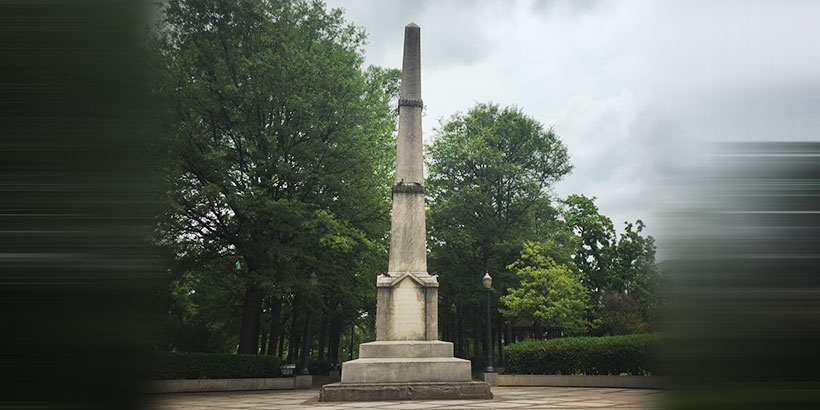
TUSCALOOSA, Ala. — Alabama Senator Gerald Allen believes there is a “revisionist movement” seeking to “whitewash” Alabama history, and he plans to do something about it during the upcoming legislative session.
In a move first reported by the Montgomery Advertiser, Senator Allen has introduced a bill that would prohibit cities from removing “any object of remembrance” from public property without first receiving permission from the Legislative Council, a 20-member group of Senate and House members.
“This legislation is about protecting all of Alabama’s history for every Alabamian, which includes the Civil War and the Civil Rights movement,” Allen said Monday morning.
Senator Allen’s bill was first introduced this past summer, around the time Birmingham’s Parks and Recreation board voted to remove a Confederate monument in Linn Park, directly across the street from Birmingham’s city hall and the Jefferson County Courthouse.
Funded and erected by the Pelham chapter of the Daughters of the Confederacy on April 26, 1905, the monument had remained in place through the Jim Crow era, the Civil Rights movement, and for the 50 years since the Voting Rights Act.
But in the fallout of the Charleston Shootings, when a white supremacist shot and killed 9 African-Americans in a South Carolina church, vestiges of honor or remembrance of the Confederacy began being threatened with removal from public property.
Alabama Governor Robert Bentley also removed the Confederate Battle Flag from the Alabama Capitol Grounds, although the Confederate Monument still remains.
“There is a revisionist movement afoot to cover over many parts of American history,” said Senator Allen. “Our national and state history should be remembered as it happened. This politically-correct movement to strike whole periods of the past from our collective memory is divisive and unnecessary.”
Additionally, if Allen’s bill gains approval, renaming a “school, street, bridge, building, park, preserve, or reserve” that bears the name of “an event, a person, a group, a movement, or military service” would also require the Council’s approval.
The Alabama Senate voted last year to rename the Edmund Pettus Bridge, which was famously crossed by civil rights activists on “Bloody Sunday” in 1965, the “Journey to Freedom Bridge.” The bridge was named after Edmund Pettus, a Confederate general, Grand Dragon of the Alabama KKK, and Democratic Senator.
“There are many things in our society to change that are more significant than the name of a bridge,” wrote Senator Hank Sanders (D-Selma), the resolution’s sponsor, “but removing this vestige of the past will serve as a parallel to the ongoing journey towards equal rights, fair representation and open opportunity.”
The bill did not gain approval by the full legislature, and sparked a backlash from both Republicans and Democrats, including Congresswoman Terri Sewell (D-AL7).
“I am strongly opposed to changing the name of the Edmund Pettus Bridge,” she said at the time. “The historical irony is an integral part of the complicated history of Selma — a city known for its pivotal role in Civil War and the civil rights movement.
“The bridge is an iconic symbol of the struggle for voting rights in America, and its name is as significant as its imposing structure. Changing the name of the bridge would change the course of history and compromise the historical integrity of the voting rights movement. As inheritors of the legacy surrounding the historical events that took place in Selma, we must safeguard that history–good and bad and resist attempts to rewrite it.”
Senator Allen’s bill to preserve history is expected to get consideration when the Legislature convenes for the 2016 Regular Legislative Sessions on February 2.
Don’t miss out! Subscribe today to have Alabama’s leading headlines delivered to your inbox.